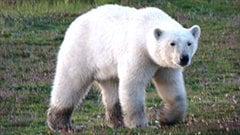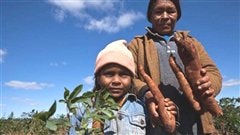For this week’s edition, Wojtek, Lynn, and me, Marc are back again with a review and discussion of some of the many interesting stories we have covered this week.
Listen
We’ve long been hearing about how global warming is affecting the climate and environment of the far north, but there is a unique climate much farther to the south which has resisted global warming, or was thought to be resisting.
Scientists from Kingston Ontario’s Queen’s University have been studying this unique area called the Hudson Bay Lowlands.
This is a huge region around the southern and western coastline of the enormous bay which has remained cold in spite of its southerly location thanks to the usually ice covered salty water of Hudson Bay..
What they discovered is that now it too has begun to feel the effects of warming and the environment is changing. The scientists say, this is dramatic and could well have global climate repercussions

Next we hear about how our demand for sugar is forcing people off the land in distant developing countries.
Large corporations are buying or acquiring huge tracts of land in developing countries to grow foods for export.
Often its to grow crops to produce sugar for multinational food and drink companies or suppliers.
In many cases, small hold farmers or others have been on the land for generations, but without any official title and the large corporations obtain title or permission from state officials and take over the land forcing people to leave, usually in a desperate condition.
Oxfam has started a petition asking companies like Coke and Pepsi and other multinationals and suppliers stop the practice of “land-grabs”.

Who’s spying on who, and why? Wojtek has a report on allegations that Canada’s Communications Security Establishment of Canada (C-SEC) spied on Brazil’s Mines and Energy Ministry continue to raise questions in both countries.
Brazilian TV reported this week on the story after working with an American journalist using leaked documents from Edward Snowden, a former National Security Agency (NSA) employee of the US security operation,
Brazil’s President is asking for explanations. The Canadian government says its reaching out to Brazilian authorities on the matter, and the Canadian Prime Minister says he is concerned about the allegations, but can’t comment on national security issues.
.







For reasons beyond our control, and for an undetermined period of time, our comment section is now closed. However, our social networks remain open to your contributions.